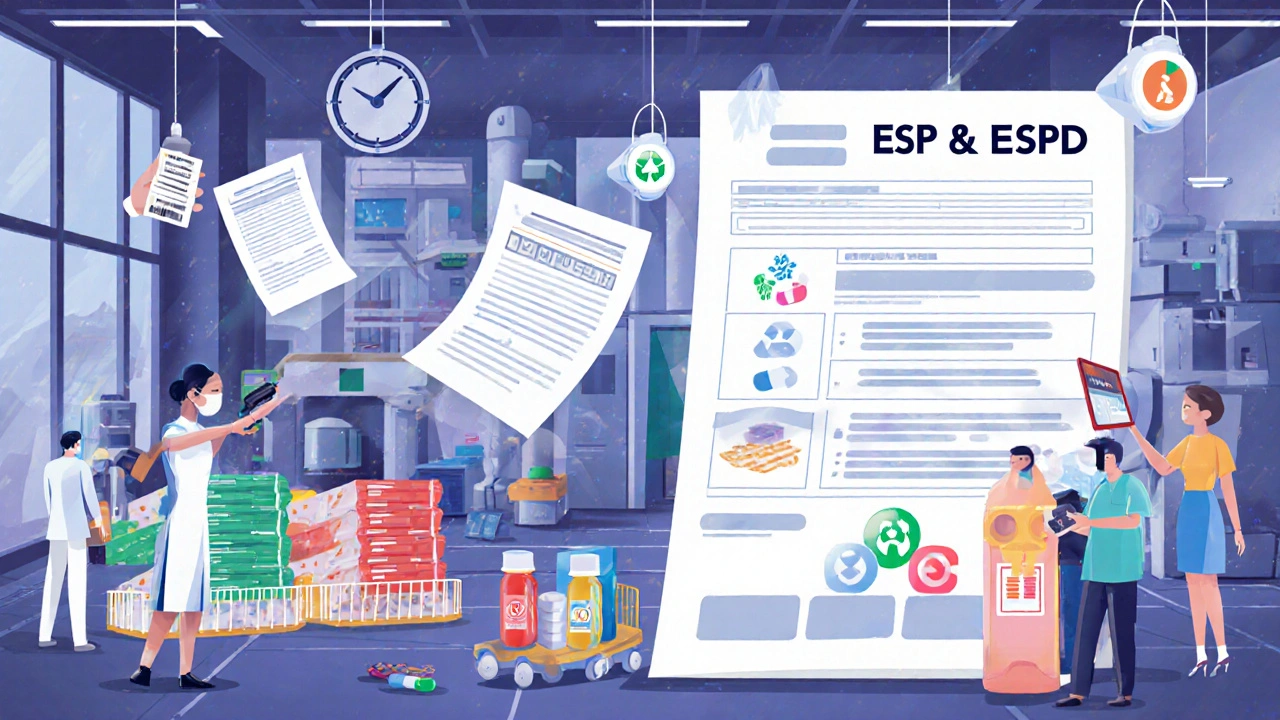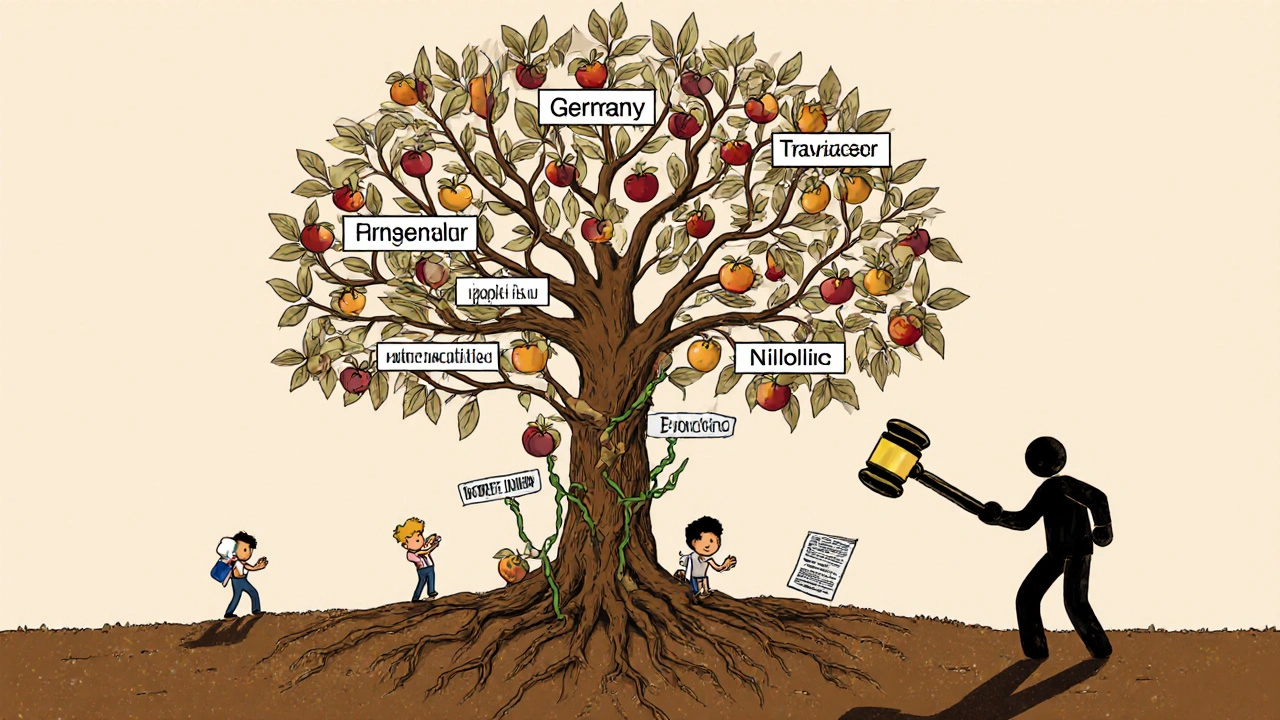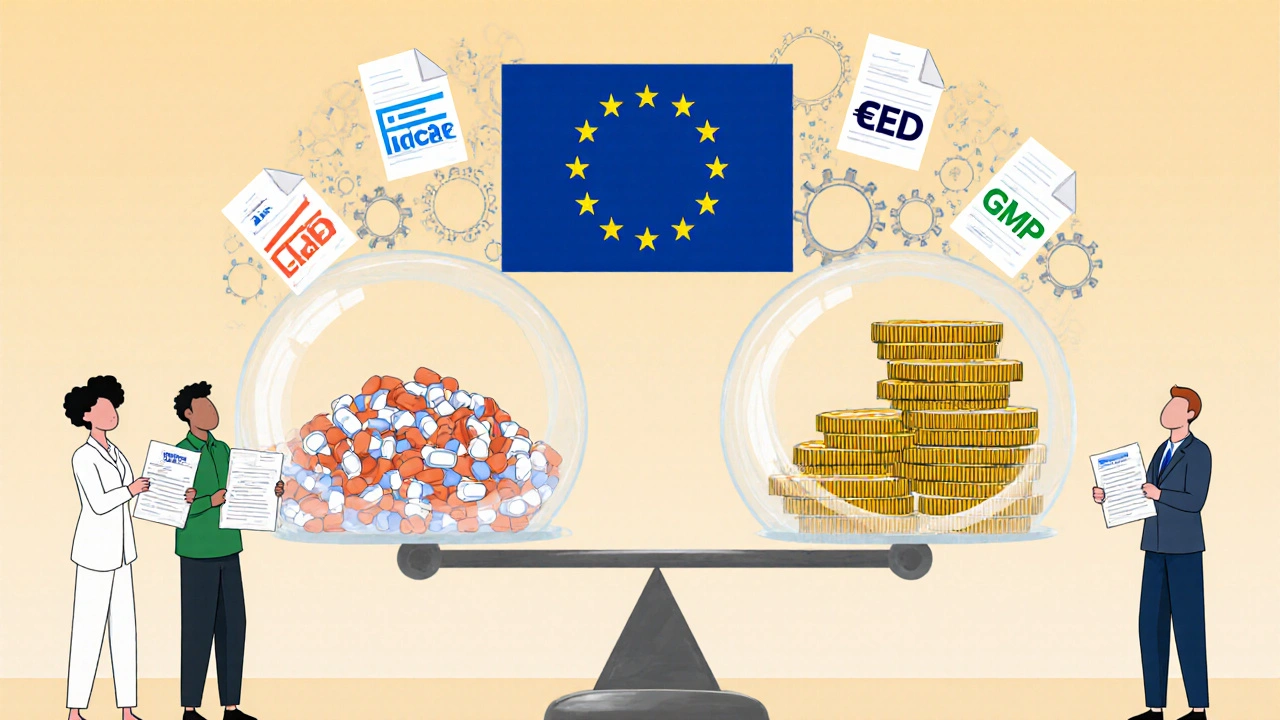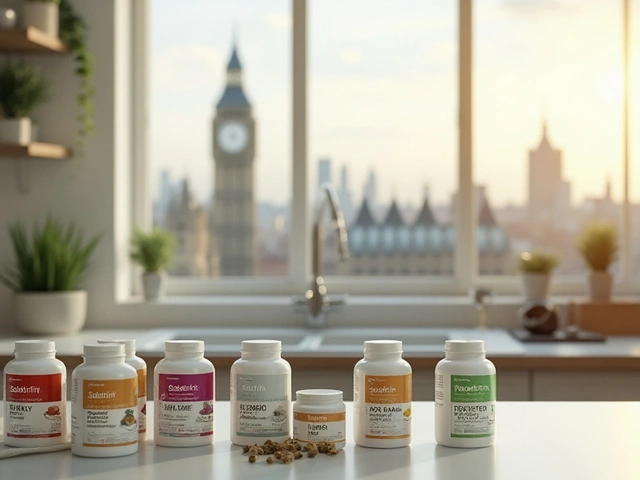How Europe Buys Generic Drugs - And Why It Works
Every year, European public health systems spend over €2 trillion on goods and services. About 14% of that - roughly €280 billion - goes to medicines. And more than half of those medicine purchases? Generic drugs. Not brand names. Not patents. Just the active ingredients, sold at a fraction of the cost. But how do governments make sure they’re getting the best deal? It’s not about who shouts the loudest. It’s not about who has the prettiest brochure. It’s about tendering systems.
Europe doesn’t just buy generics. It designs the entire process to force competition, cut waste, and protect public money. Unlike in some countries where drug prices are set by negotiation behind closed doors, Europe uses open, rules-based systems where any qualified supplier - from a small Belgian lab to a large Indian manufacturer - can compete. The goal? Lower prices without lowering quality. And it works.
The Rules: What Makes European Tendering Different
The foundation of Europe’s approach is simple: fairness, transparency, and proportionality. These aren’t vague ideals. They’re legally binding. The current rules come from Directive 2014/24/EU and Directive 2014/25/EU - two laws that apply to every public buyer in the EU, from a city hospital in Lisbon to a national pharmacy in Warsaw.
One of the biggest differences from other regions? Proportionality. If you’re buying €500,000 worth of generic insulin, you can’t require suppliers to have €10 million in annual revenue. That’s illegal. The requirements must match the scale of the contract. This opens the door for small and mid-sized manufacturers - the very ones who keep generic prices low - to compete on equal footing.
Every tender must be published in the Official Journal of the European Union, and all notices appear on Tenders Electronic Daily (TED), the EU’s central procurement portal. No hidden deals. No backroom contracts. If you want to bid, you find it there.
The Five Ways Europe Buys Generics
There are five main tendering procedures used for medicines. Each serves a different purpose.
- Open Procedure: Any supplier can submit a bid. This is the most common - used in about 45% of EU tenders. It’s simple, transparent, and creates the most competition. Perfect for standard generics like metformin or atorvastatin.
- Restricted Procedure: Suppliers first apply to be shortlisted. Only those who pass a qualification check (like proof of GMP certification or financial stability) get to submit a full bid. Used in 35% of cases. Helps reduce paperwork for buyers while still allowing competition.
- Competitive Negotiated Procedure: Used when the product is complex or when there are very few suppliers. The buyer talks to a few pre-selected companies, refines requirements, then asks for final bids. Rare for generics, but sometimes used for specialized formulations.
- Competitive Dialogue: For projects where the exact specs aren’t clear yet. The buyer and suppliers discuss options before final bids. This is more common in digital health systems than in generic drug purchases - but it’s growing.
- Framework Agreements: This is where things get powerful. Instead of running a new tender every time a hospital needs 10,000 boxes of paracetamol, they set up a list of pre-approved suppliers. When they need more, they run a mini-competition among those suppliers. Multi-supplier frameworks are the gold standard - they prevent lock-in and keep prices competitive over time.
Framework agreements are especially common in national health systems. Germany, Sweden, and the Netherlands use them for 60%+ of their generic drug purchases. The result? Consistent pricing, predictable supply chains, and less administrative work for hospitals.

MEAT: The Secret Weapon Behind Lower Prices
Here’s the biggest myth about public procurement: that the lowest price always wins. In Europe, that’s not true - not anymore.
Since 2022, EU rules require that for any tender over €1 million, at least 50% of the evaluation score must go to quality, not just price. This is called MEAT - Most Economically Advantageous Tender. It’s not just about cost. It’s about value.
What does that mean in practice? A bid for generic antibiotics might be scored like this:
- Price: 40%
- Supplier reliability (delivery history): 20%
- Quality certifications (GMP, ISO): 15%
- Environmental impact (packaging, carbon footprint): 10%
- Local employment or regional sourcing: 15%
Why does this matter? Because it stops the race to the bottom. A supplier might offer €0.01 cheaper per tablet - but if they’ve missed deliveries three times in the past year, they lose. A company that uses recyclable packaging and pays fair wages might pay more - but if they’re more reliable, they win.
Studies show this approach cuts long-term costs. The European Public Procurement Observatory found that authorities using MEAT saw 15.7% more innovation in their drug supplies - things like better blister packs, easier-to-read labels, or tamper-proof seals. All of which reduce waste and improve patient safety.
Who Wins? Who Loses?
The system favors transparency, but it’s not perfect.
Large pharmaceutical companies with global supply chains and legal teams have an advantage. They know how to fill out the forms, navigate the CPV codes (Common Procurement Vocabulary), and respond to complex technical requirements. But small manufacturers? They’re not shut out - they just need help.
A 2023 survey of 1,200 EU businesses found that small companies spent an average of 117 hours per tender. That’s three full workweeks. Many give up. One French SME spent 8 months qualifying for a framework agreement with a regional health authority - and got only two mini-tenders in 18 months. The cost of bidding outweighed the reward.
But the success stories are real. A Finnish generic drug maker won a national tender for asthma inhalers using a Competitive Dialogue process. They worked with the health authority to redesign the packaging - making it easier for elderly patients to open. The result? 32% lower cost per unit, faster delivery, and fewer returns due to misuse.
The biggest losers? Suppliers who think they can game the system. The European Court of Justice ruled on 147 procurement cases in 2022 alone. Many involved suppliers who falsified certifications or tried to collude. Those cases led to fines, blacklists, and even criminal charges.

The Digital Shift: Faster, Cleaner, Smarter
Europe is moving fast. In 2016, only 39% of tenders were done electronically. By 2022, that jumped to 76%. The goal? 95% by 2027.
The European Single Procurement Document (ESPD) is a game-changer. Instead of submitting 50 pages of paperwork for every tender, suppliers now fill out a single digital form. It auto-populates with verified data - tax ID, certifications, financial status - pulled from national databases. This cut administrative time by 40% in pilot countries.
Some countries are even testing AI to help evaluate bids. France and Finland ran pilots where AI reviewed bids for consistency, flagged discrepancies, and scored compliance with technical specs. The results? 30% faster evaluations, with 99.2% accuracy compared to human reviewers.
Sustainability is now baked in. Over 68% of high-value drug tenders include environmental criteria. That means suppliers are being asked: Can your packaging be recycled? Do you use renewable energy in your factory? How much CO2 does shipping your product generate?
By 2028, 75% of major drug tenders are expected to require circular economy standards. That’s not greenwashing - it’s cost control. Lower emissions mean lower logistics costs. Better packaging means less waste. Health systems are realizing: sustainability isn’t a bonus. It’s a budget saver.
Why This Matters for Global Generic Markets
Europe isn’t just buying generics - it’s shaping how they’re made.
Manufacturers in India, China, and Brazil don’t just sell to Europe because it’s a big market. They design their products to meet European standards - because if they can pass a European tender, they can pass almost any tender in the world. GMP certification, electronic documentation, environmental reporting - these are now global benchmarks.
When a European health authority demands traceability from raw material to finished tablet, manufacturers invest in blockchain tracking. When they require carbon-neutral shipping, logistics firms upgrade their fleets. The EU doesn’t just set prices - it sets the rules of the game.
And the results? Generic drug prices in Europe are, on average, 50-70% lower than in the U.S. for the same active ingredients. That’s not because Europeans are cheaper to pay. It’s because they built a system that forces competition, rewards reliability, and punishes inefficiency.
What’s Next?
The European Commission is pushing for even deeper integration. By 2026, all member states must use a standardized digital platform for tenders. That means a supplier in Poland can bid on a contract in Spain with the same form, same rules, same language.
Strategic autonomy is becoming a new focus. For critical medicines - antibiotics, vaccines, insulin - the EU is building buffer stocks and requiring suppliers to have backup production sites within the bloc. Geopolitical risk is now part of the evaluation score.
And the biggest shift? Buyers are talking to suppliers before they even issue a tender. Pre-market consultations are now standard. That means manufacturers can tell health authorities: “Here’s what we can do. Here’s what we’re working on. Here’s how we can help.” It turns procurement from a transaction into a partnership.
Europe’s tendering system isn’t perfect. It’s complex. It’s slow sometimes. But it’s the most transparent, rules-based, and value-driven system for buying generic drugs in the world. And it’s working - not just for hospitals, but for patients, manufacturers, and taxpayers across 27 countries.
How do European countries ensure generic drugs are safe during tendering?
Safety isn’t negotiated - it’s mandatory. Every supplier must provide proof of GMP (Good Manufacturing Practice) certification from an EU-recognized authority. Bids are rejected outright if documentation is missing or outdated. Additionally, the European Medicines Agency (EMA) audits manufacturing sites, and national regulators conduct random inspections. A supplier with a history of quality violations is automatically disqualified.
Can non-EU companies bid on European public tenders for generics?
Yes, absolutely. Companies from countries with trade agreements with the EU - like Canada, Japan, South Korea, and Switzerland - can bid on most tenders. Even companies from countries without formal agreements can participate if the tender is published under the WTO Agreement on Government Procurement. Many of the world’s largest generic manufacturers - like Teva, Mylan, and Sun Pharma - rely on EU contracts for a major share of their revenue.
Why don’t all European countries use the same tendering system?
The EU sets the rules, but each country writes its own national laws to follow them. So while the core principles - transparency, proportionality, MEAT - are the same, the tools vary. Germany uses centralized purchasing agencies. Spain delegates to regional health services. Sweden runs national frameworks. The result? Different processes, but the same goals. Harmonization is improving, especially with digital platforms like ESPD and TED.
What happens if a supplier fails to deliver on a tendered contract?
Consequences are strict. Missed deliveries trigger financial penalties - often 1-3% of the contract value per day late. Repeated failures lead to suspension from future tenders. In extreme cases, contracts are terminated and the supplier is blacklisted for up to five years. Authorities also have the right to switch to a backup supplier from the same framework agreement without restarting the entire tender.
Are there any examples of tendering systems failing in Europe?
Yes. In 2021, a €180 million rail signaling contract in Spain was canceled after 18 months because the technical specs were too vague. Suppliers couldn’t agree on what was required, leading to delays and legal battles. Similar issues happened in Italy and Greece with digital health platforms. The lesson? Clear requirements prevent failure. That’s why the EU now mandates pre-tender consultations and requires detailed technical documentation - especially for complex procurements.





November 18, 2025 AT 16:53 PM
they're watching us. every bid, every barcode, every pill. the 'transparency' is just a front. they're tracking who buys what, and soon they'll know if you're taking metformin or not. why do you think they added 'environmental impact' to the scoring? it's not about the planet. it's about control.
November 18, 2025 AT 18:29 PM
this is actually so cool 😊 i love that small companies can compete now! my cousin works at a tiny pharma lab in Cork and they just won their first EU tender last year. it’s not perfect but it’s a start!
November 19, 2025 AT 10:45 AM
This is why Europe is superior. We don’t let greedy American pharma corporations dictate prices. We have rules. Discipline. Structure. You Americans think ‘lowest price wins’ is efficiency. It’s not. It’s collapse. We build systems. You build spreadsheets.
November 19, 2025 AT 14:12 PM
MEAT? More like MESS. They’re pretending they care about ‘sustainability’ and ‘local employment’ while quietly funneling contracts to the same five multinationals who have lobbyists in Brussels on speed dial. The ‘small manufacturer’ narrative? A distraction. The system was never meant for them. It’s just a prettier cage.
November 20, 2025 AT 09:27 AM
You’re all ignoring the real issue: the EU is weaponizing procurement to force global manufacturers into compliance. This isn’t about healthcare. It’s about sovereignty. And they’re using your medicine to do it.
November 21, 2025 AT 20:05 PM
I KNEW IT. They’re putting carbon footprint on the scorecard because they want to shut down Indian factories. That’s why they’re pushing ‘circular economy’-it’s a trade war disguised as eco-friendly policy. And now they’re using AI to judge bids? Who’s training the AI? Big Pharma? This is a setup.
November 22, 2025 AT 01:29 AM
The procedural integrity of the EU tendering framework is statistically robust. Empirical data from the European Public Procurement Observatory (2023) indicates a 17.2% reduction in contract non-compliance rates post-MEAT implementation. Furthermore, the ESPD system reduced administrative overhead by 41.3% across pilot jurisdictions. The system is not flawless, but it is methodologically sound.
November 22, 2025 AT 17:28 PM
Oh wow, so now we’re judging pills by their packaging? Next they’ll give bonus points for ‘empathetic labeling’ and ‘trauma-informed blister packs’. Can I get a gold star if my generic aspirin comes with a hug?
November 23, 2025 AT 14:46 PM
I’ve worked in public health procurement for 12 years. This system isn’t perfect, but it’s the best we’ve got. The key is consistency. Framework agreements mean hospitals don’t have to re-bid every six months. That saves time, money, and stress. Small suppliers need support, not scorn. Mentorship programs work.
November 23, 2025 AT 17:47 PM
It’s important to recognize that while the system has flaws, the intent is noble: to ensure that public funds are used to protect lives, not enrich shareholders. The shift toward MEAT reflects a broader global evolution in public service ethics. We’re moving from transactional to relational procurement.
November 24, 2025 AT 07:25 AM
The AI thing is wild honestly. I read a paper where they trained it on 200k past bids and it caught 98% of fake GMP certs. No human could do that. And the ESPD? Saved my team 3 weeks of paperwork last year. Yeah it’s bureaucratic but it’s getting smarter
November 24, 2025 AT 17:55 PM
This is actually really inspiring 🙌 I didn’t know small labs could compete like this. My brother works at a generics plant in Kerala and they’re trying to qualify for a tender next year. Hope they make it. The system’s not perfect but it’s giving people a shot.
November 25, 2025 AT 00:14 AM
India makes 80% of the world's generics and Europe still thinks they can dictate terms? You think your ‘MEAT’ system is smart? We’ve been supplying you for decades with zero complaints. Your ‘sustainability’ criteria? Just another excuse to protect your weak local pharma. Wake up.
November 25, 2025 AT 03:35 AM
I think the real win here is that patients are getting cheaper, reliable meds without sacrificing safety. The system’s complex, sure, but when it works, it works. And that’s what matters. We need more of this, not less.
November 26, 2025 AT 13:36 PM
The EU tendering architecture leverages dynamic procurement orchestration through MEAT-based multi-criteria evaluation matrices, enabling optimal value capture via supply chain resilience protocols. The integration of ESPD and TED platforms facilitates real-time compliance monitoring and blockchain-verified GMP traceability, thereby mitigating asymmetric information risks in pharmaceutical procurement ecosystems.